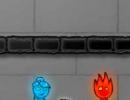We can turn fear into strength. Freeing energy (from blocks of fears, grievances, etc.) to transform negative emotions into positive ones
As a psychological state, fear is not always a reaction to serious and immediate danger. Fear manifests itself in different ways: it is anxiety, restlessness, excitement, nervousness, tension, all kinds of phobias, and much more.
If a person is subject to psychological fear, he is afraid not of what is happening now, but of what might happen.
You are here now, but your mind is transported to the future. A kind of gap is formed, a gap into which anxiety creeps in. And if you identify yourself with the mind, having lost touch with the power and simplicity of the Present, this period of anxiety will remain with you for the rest of your life. You can always cope with the present time, but it is impossible to cope with the projection of the mind - just as it is impossible to cope with the future.
Moreover, as long as you identify yourself with the mind, your life is controlled by the ego. But the ego is a phantom. Therefore, despite the complex defense mechanisms, it is vulnerable and vulnerable; your ego constantly imagines danger. This is the whole essence of the ego, although from the outside it may seem to be the embodiment of confidence.
Remember: emotion is a bodily reaction of the mind. What message is the ego, your mind-generated false self, constantly sending to your body? “Attention, I am in danger!”
What emotion does this constantly repeated signal evoke?
Of course, fear.
It seems to us that fear has many reasons: fear of loss, fear of failure, fear of pain and the like. But ultimately all fears come down to the fact that the ego is afraid of death, afraid of annihilation. It always seems to the ego that death is somewhere nearby. When a person identifies himself with the mind, the fear of death leaves its mark on all areas of his life.
The fear of death explains even such a seemingly ordinary and “normal” phenomenon as the persistent need to win any argument, to prove the interlocutor wrong and to defend the truth of the position with which the arguer has identified himself. After all, if you identify yourself with a belief and then it turns out that this belief is false, your reason-based idea of \u200b\u200bself is in danger of being destroyed. Therefore, as the embodied ego, you cannot make mistakes. A mistake is tantamount to death. This approach has more than once become the reason for the breakdown of relations and the cause of wars.
When you stop identifying with the mind, your self-image will no longer depend on whether you are right or wrong. This means that the obsessive and deeply subconscious need to be right (essentially a form of violence) will finally disappear. You will be able to communicate your views and feelings clearly and clearly, but you will do so without aggression or defensiveness. Your self-image will not be based on reason, but on something deeper and truer within you.
WATCH ALL YOUR DEFENSE REACTIONS. What are you protecting? You are protecting an illusory personality, a mind-created image, a fictitious entity. Awareness of protective behavior patterns and observation of them leads to disidentification. In the light of your consciousness, patterns of unconsciousness will quickly dissolve.
This will put an end to the arguments and “power games” that are so destructive to relationships. Power over others is weakness disguised as strength. True power is within a person, it is available to you right now.
The mind is constantly trying to reject the Present and run away from it. In other words, the more you identify with the mind, the more you suffer. Another way of putting it is that the more you appreciate and accept the Now, the less pain you suffer—and the less power the selfish mind has over you.
If you don’t want to hurt yourself and others, if you don’t want to multiply the pain of the past that is still living in you, then stop creating time - at least don’t create more of it than is required to solve practical issues. How to stop creating time?
BE DEEPLY REALIZED THAT NOW is the only thing you have. Focus all your attention on the Now.
Previously, you lived in time and only occasionally appeared in the Present. The time has come to move to the Now and visit the past and future only occasionally - to solve some pressing problems.
Always say “Yes” to the present moment.
You can sit in a chair or take any position in which you are comfortable. Place your hands together on your knees, right hand under the left - this position is important because the right hand is connected to the left hemisphere of the brain, and fear always comes from the left hemisphere. The left hand is connected to the right brain, and courage always comes from the right brain.
The left hemisphere is the seat of logic, and logic is always cowardly. That is why you will not find a person who is both brave and intelligent. And if you find a brave man, he will not be intellectual. He will be irrational, that's inevitable. The right hemisphere of the brain is intuitive... it's just symbolism, but not only symbolism: it brings energies into a certain position, into certain relationships.
Therefore, the right hand is under the left, the thumbs touching. Then relax, close your eyes, let your lower jaw relax a little - don't tense it... just relax it so that you can start breathing through your mouth. Don't breathe through your nose, just start breathing through your mouth; it's very relaxing. And when you don't breathe through your nose, the old mental pattern will no longer work. It will be something new, and with a new breathing system it will be easier to form a new habit.
Secondly, if you don't breathe through your nose, breathing doesn't stimulate your brain. It simply does not enter the brain: the breath goes straight to the lungs. Otherwise, constant stimulation and massage continues. This is why breathing through the nostrils is constantly changing. Inhaling through one nostril massages one side of the brain; breathing through another - another. They change every forty minutes.
So just sit in this position, breathing through your mouth. The nose is dual, the mouth is not dual. There is no change in mouth breathing: if you sit for an hour, you will breathe the same way. There will be no change; you will remain in the same state. When you breathe through your nose, you cannot remain in one state. The state changes automatically; it changes without your consciousness.
This will create a very silent, non-dualistic, new state of relaxation, and your energies will begin to flow in a new way.
Just sit silently, doing nothing, for at least forty minutes. If you can do this for an hour, it will be a huge help. Therefore, if possible, start with forty minutes, then work your way up to sixty.
Do this every day.
In the meantime, don't miss any opportunity; whenever the opportunity presents itself, go for it. Always choose life, always choose action; never quit, never run. Enjoy every opportunity that comes your way to do something, to be creative.
Elena Shevchenko, Psychologies: Let's talk about what I personally am afraid of. I hope you can help me understand my fears and overcome them. To begin with, here is my completely natural concern: I would not like to be left without a job or get by with odd jobs...
Charles Pepin: Like anyone, you may lose your regular job and your income may decrease. But most of us are in no danger of ending up on the street. In fact, we willingly hide our deeper fears in the cocoon of “fear of being on the street”, related, for example, to the meaning of our life, and not just to financial or social viability.
Margarita Zhamkochyan: Let's start with the fact that fear itself means that we are in the zone of failure and ineffectiveness. It limits our possibilities. Therefore, if a person is afraid of heights, the mountains are closed to him, and the fear of losing his job (as in your case, Elena) closes your own desires and ambitions from you. This self-restraint is associated either with the reluctance to fall out of the social unit, to become a “unit”, an individual who chooses her own path, or with the fear of losing control over the situation.
Can I turn this fear into driving force?

Sh.P.: Not everything can be turned to your advantage. This may seem paradoxical, but in order to overcome our fears, it seems to me that we should first admit that they weaken us and make us vulnerable. Don't try to deal with them in a rush.
M.Zh.: Turning fear into driving force is not an easy job. The first step is to bring the fear out and examine it, to make the invisible visible. And it’s better for this to happen in a relatively safe environment, which psychotherapists help create. Removing fear causes an amazing effect - the individual’s capabilities in all areas of his activity increase, a feeling of the limitlessness of his own power arises - “I can do anything.”
Sh.P.: It all comes down to going to meet what is hidden inside us, more precisely, with our desires. said: “The goal of psychoanalysis is to find a way to be true to your desires.” Some philosophers, such as Nietzsche, also put forward this requirement of being true to oneself. So perhaps when we are paralyzed by fear, it might be helpful to try to understand what that fear says about ourselves.
But some fears exist objectively and are inherent in almost everyone: for example, I worry about the future of my children...
Sh.P.: I want to tell you right away that this is a “good” fear. It seems to me more reasonable and healthier than the fear of being left without funds. Probably because this feeling is associated with altruism, and the fear of poverty closes a person on himself...
Their book therapy
Our interlocutors named us books that will help protect ourselves from fears and doubts.
- Abraham Maslow, The Farthest Limits of Human Personality. Eurasia, 2002.
- Lawrence Perwin, Oliver John “Personality Psychology. Theory and research". Aspect Press, 2001.
- Erich Fromm "Flight from Freedom." AST, 2009.
- Epicurus "Fragments". Directmedia Publishing, 2002.
- Friedrich Nietzsche "The Gay Science". ABC-classics, 2010.
- Jean-Paul Sartre "Being and Nothingness." AST, 2009.
- Montaigne "Experiments". Terra Book Club, 2008.
Can you encourage me as a philosopher?
Sh.P.: This altruistic fear is also called “moral consciousness” or “historical responsibility.” It is in this, according to Kant, that the greatness of man lies. I would encourage you to love this fear first because it elevates you. And then work on... becoming a good dead man! After all, each of us knows: “I will die before my children, I am responsible for the fact that they were born. So I need to try not to burden them too much after my death.”
Sh.P.:Sh.P.: Being a good dead person means not ruining the lives of those who will live, and helping them if necessary. Some philosophical systems, such as Kant's, would invite us to ask the question: “What should I have time to say? What family secret will I have to reveal before I die? There are things that need to be revealed in order to finally be freed from them. You also need to pass on values to the next generations: honesty with yourself, freedom... If you work in this direction, you will see that your fear will dissipate.
It turns out that passing something as an inheritance to your children is a way to gain immortality and, therefore, be less afraid?
Sh.P.: I would rather talk about eternity rather than immortality. Immortality is life that never ends. And eternity is visible in a beautiful moment or in the value that we defend and want to convey... Yes, in order to overcome our fear of letting go of those we love, we will try in our relationships with children to work on what belongs to eternity.
What can you say about my fear, Margarita Stepanovna?
“OUR ETERNITY IS IN THE VALUES THAT WE DEFEND.”
M.Zh.: I would suggest that you think about what exactly you are afraid of. If you fear for the future of your children, for example, how they will live in this world if they are suddenly left alone, then you can call this fear positive. He will help you prepare for their future, taking steps “just in case.” You will try to provide your children with a good education, teach them everything, and prepare them for difficulties. Or give your child a gas canister and emergency phone numbers, tell him how to react to danger, describe it... If your goal is to protect your child from bad company, you will try to raise him so that he has something inside to rely on, so that he doesn’t have to was to make dubious friends and thus prove one’s importance.
What is useless or wrong in my fear for my children?
M.Zh.: Anxiety. The child is not at home, you are nervous and worried. Very often this turns into aggression against the child - it turns out that it is his fault that you were worried. And when he finally arrives, you attack him shouting: “You made your mother worry!” This is a very unpleasant moment in our culture: very often children are responsible for the mother’s experiences. Intimidating yourself and your child with negative consequences (“If you study poorly, you will become a janitor”) is a transfer of our fears onto our children. So worry about the children yourself! It was your choice to become parents. And that means your risk...
Sh.P.: I would like to add that happiness is never complete; anxiety is always mixed with it. Get used to living in a situation of risk - this idea is also shared by the Stoics and Nietzsche. True, these philosophers never considered the question of “my” death from the point of view of the fact that orphans will remain after me. But Nietzsche’s proposal is still excellent: love your mortality, measure your existence by the fullness of the moment you live - even if it is always both pleasant and unpleasant. Here's a parent's guide!
Can you say that learning to live in the present will help me overcome fear?
Sh.P.: Sartre showed that fear is always an expectation of what will happen in the future. He gives the example of a woman who was terrified of approaching the window, because it seemed to her that then she would start inviting passers-by like a prostitute. In other words, we are afraid of our freedom: not that we cannot do something, but of our own power to do what we want.
M.Zh.: For individuality, there is no concept of “right or wrong,” there is “mine” or “not mine,” “corresponding to me” or “not corresponding to me.” The main criterion of truth is inside the person, and not outside. Listen to yourself, your desires, needs. If you are afraid of them - to realize or manifest them - you are afraid of freedom.Sh.P.: The Epicureans taught us to be content with what we have. Yes, I did “just this,” but I did it, and, most importantly, I could not have done that. It is already wonderful that I exist and that I acted. Happiness lives in the space between who I try to be and who I am in my fidelity to my deepest desire - but first I have to find that desire...
What are your greatest fears?
Sh.P.: I'm afraid that life is passing too quickly, that death will come before I have time to do everything I have to do.
M.Zh.: Fear of heights, feeling of limitless space in front of me. Leaving this fear to myself, I honestly admit that I am afraid of losing my head from my own unlimited possibilities. But inside myself I am not afraid of anything.
The ability to transform metals into gold is a key aspect of alchemy. An ancient belief says that any transformed substance - even poison - acquires positive properties.
I first heard about this from a shaman from South America. He spoke about his experience of a year of silence and other severe austerities: “During this year I experienced a strong desire to speak to someone. My suffering lasted for seven months, and suddenly I felt how the Earth was helping me cope with what I had experienced. I still feel this healing power, this connection with Her.”
I heard a similar story from a former drug addict: “I hit rock bottom. I was on the verge. From the age of 12 I was dependent, and words cannot describe what hell it was. The only way out for me was to stay in the present moment, by an effort of will to remain aware. And so, going through the worst time in my life, I suddenly experienced powerful self-confidence that I would succeed, that I would have the strength to overcome these trials. And so it happened. Since then, this feeling of confidence has always been with me.”
I was surprised that two completely different people, from different parts of the planet, different cultures and education, talk about absolutely identical experiences. They both experienced this transformative effect, just like in alchemy - pain, uncertainty, forbidden desire turned into something that forever changed the lives of these people for the better. It turns out that negative emotions were necessary for positive changes.
Basic emotions are often locked inside of us. Fear, anger, hatred and all derivatives of pain are nothing more than defensive reactions to encountering danger, betrayal, and resentment. But within every defensive reaction, there is an even stronger emotion that responds to life's difficulties with love and acceptance.
Fear transforms into courage. Anger transforms into love for life, for yourself and others. Pain is transformed into compassion and kindness. Hatred transforms into creativity and love, and, paradoxically, leads to inner peace.
3 ways to transform negative emotions into positive ones
- Don't pretend. Pretending takes up a lot of the energy that is needed for “alchemy.” Learn to harness your emotions through breathing, grounding, and mindfulness. Don't close your eyes, don't be ashamed of them, don't pretend they don't exist. Otherwise, you simply will not be able to digest them. Negative emotions are part of our lives, be prepared for it. With this attitude, you will actually learn to deal with them and learn from them.
- Don't suppress your emotions. Once you have accepted your emotions, you should not try to eradicate them by any means. Instead, try to feel where they are accumulated in the body. What sensations appear during anger or fear? Anger has very dynamic energy, it often goes to the jaw or hands, and is difficult to contain. Hatred is cool, hidden somewhere deep inside, but can be felt in the forehead, in the eyes, or expressed in the tension of the abdominal muscles. That is, anger wants to knock you down, destroy, but hatred strives for destruction in a colder, more calculating way. Pain works differently. It seems to you that you are experiencing it for real, in fact everything is happening in your head. You can begin to fight it, rationalize it, dramatize it, blame yourself. But only by accepting it, resigning yourself, relaxing, can you replace it with compassion.
- Understand the reason. We all deal with emotions differently. We blame ourselves for weaknesses, we are afraid of them, we deny them, we suppress them, we revel in our own helplessness. But to move forward, you need to understand their nature, why they arose. For example, consider hatred. In society, it is common to consider this emotion to be negative by default, and its bearer to be a bad person. But emotions are neutral. Hatred is a reaction to deep pain, to experienced betrayal, to lack of understanding. The same with jealousy, aggression, contempt, insult, arrogance. Stay away from prejudice and judgment. Hatred is fertile soil in which a wonderful quality can grow. Remember that wonderful feeling of ease when you sincerely forgive someone who has offended you. You will no longer be the same, your worldview and spirit have changed. Once you realize the cause of your emotion, breathe through it, open your heart and mind - you will begin to transform.
Any of your emotions is a gift for which you need to be grateful, because they can lead you to enlightenment, you just need to work with them.






